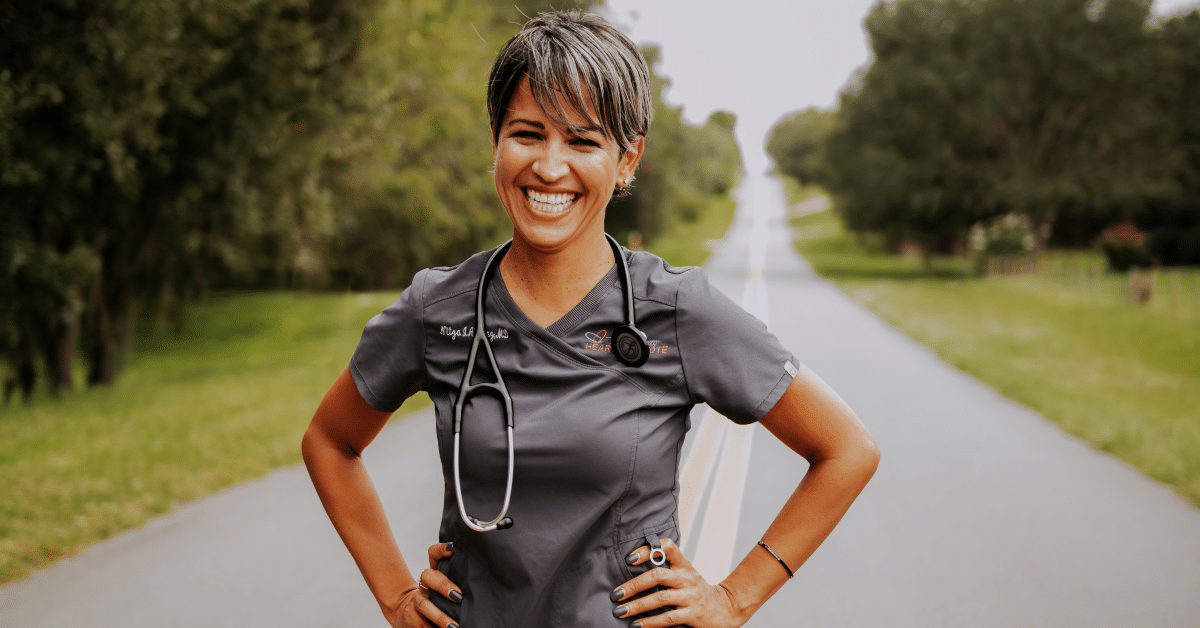
Last year, the Smidt Heart Institute at Cedars-Sinai released a study showing that women’s blood pressure tends to fall into a lower “normal” range than men. Sounds like good news, right? Unfortunately, because women tend to have lower blood pressure in their younger years, many don’t realize they’re at risk for heart disease and heart attacks caused by uncontrolled high blood pressure (HBP), or hypertension.
HBP is called “the silent killer,” and women face unique risks when it comes to keeping this deadly condition at bay. Nearly half of adult women in the U.S. have high blood pressure. Long-term HBP can lead to some of the most life-threatening health conditions, like heart attacks and stroke.
But the good news is that hypertension is the most preventable risk factor for cardiovascular disease. At NitzaMD, we’re committed to spreading awareness about heart disease risks. This month, we’ll answer women’s most commonly asked questions about hypertension. Let’s dive in!
What is a Good Blood Pressure for a Woman?
The general guideline is that your BP should be less than 120/80 mmHg and higher than 90/60 mmHg. What does that blood pressure number really mean?
- The first number is your systolic blood pressure: the pressure in your blood vessels when your heart beats.
- The second number is your diastolic BP: the pressure when your heart is resting between beats.
That said, Dr. Susan Cheng of the Smidt Heart Institute finds that the threshold of risk for health problems in women could be 110 mmHg, not 120. This difference could explain why heart disease in women isn’t detected as early as it is in men.
What Are High Blood Pressure Symptoms in Women?
High blood pressure is called the silent killer because there are no symptoms. HPB can’t be detected without being measured. That’s why early intervention and regular screening is so critically important. You should get a blood pressure reading from your doctor at least every two years, more often if it is above 120/80 mm Hg. If you know that you have HPB, invest in a blood pressure monitor you can use at home between doctor visits.
What Causes High BP In Women?
Several factors can increase your risk of developing high blood pressure. The most common and preventable contributing factor is obesity, followed closely by stress. And as we know, women are more likely to be overweight and overstressed.
Thankfully, there are plenty of lifestyle changes that can make a significant difference in your heart health:
- Get regular exercise (try the fun kind!)
- Reduce your intake of salt
- Eat more fruits, vegetables, and nuts
- Avoid red meat and processed foods
- Limit your intake of alcohol
- Find a reliable way to reduce and manage stress
What is a Normal Blood Pressure for Pregnant Women?
Pregnant women should have the same blood pressure range as they do normally—lower than 110 or 120 mm hg over 80 mm hg. That said, pregnant women are more likely to develop stage 1 hypertension, or elevated BP, even if they’ve never had it before. When severe high blood pressure develops during pregnancy, we call it preeclampsia.
Attending regular appointments with your doctor or OB/GYN during pregnancy is critical for monitoring and managing your BP. Left untreated, preeclampsia is life-threatening for mothers and their unborn babies.
Does Blood Pressure Change with Age?
While your healthy range doesn’t change, women are at a much higher risk for HBP after menopause. Estrogen helps regulate blood pressure, and we lose estrogen when we hit menopause.
Researchers at Cedars-Sinai have also found that blood pressure starts rising earlier and advances faster in women. Our blood vessels age faster, meaning that HBP in our younger years can do more damage than we previously understood. Even young women should be taking an active role in measuring their blood pressure and managing their risks.
Prevent the Silent Killer: Screenings Save Lives!
Uncontrolled high blood pressure puts women at a much higher risk for stroke, heart disease, and heart attack. We know that heart attacks have a bigger impact on women than men—in fact, they are at least twice as likely as men to die within a year of a heart attack. That’s why getting regular screenings is crucial.
The best thing to do is prevent a heart attack altogether with a healthy lifestyle and blood pressure management. If you’re ready to take on this silent killer before it reaches you, subscribe to our newsletter for the latest tips, tricks, and insights from Dr. Alvarez!
NitzaMD: Empowering Women to Take Charge of Their Heart Health in Central Florida
At NitzaMD, we offer comprehensive cardiac screening and heart disease early intervention programs to women in The Villages, FL, Lady Lake, FL, and beyond. Prevent the stent by scheduling your life-saving screening with Dr. Alvarez or joining a heart-healthy early intervention program. Contact us online or by calling (352) 717-0220 today!
